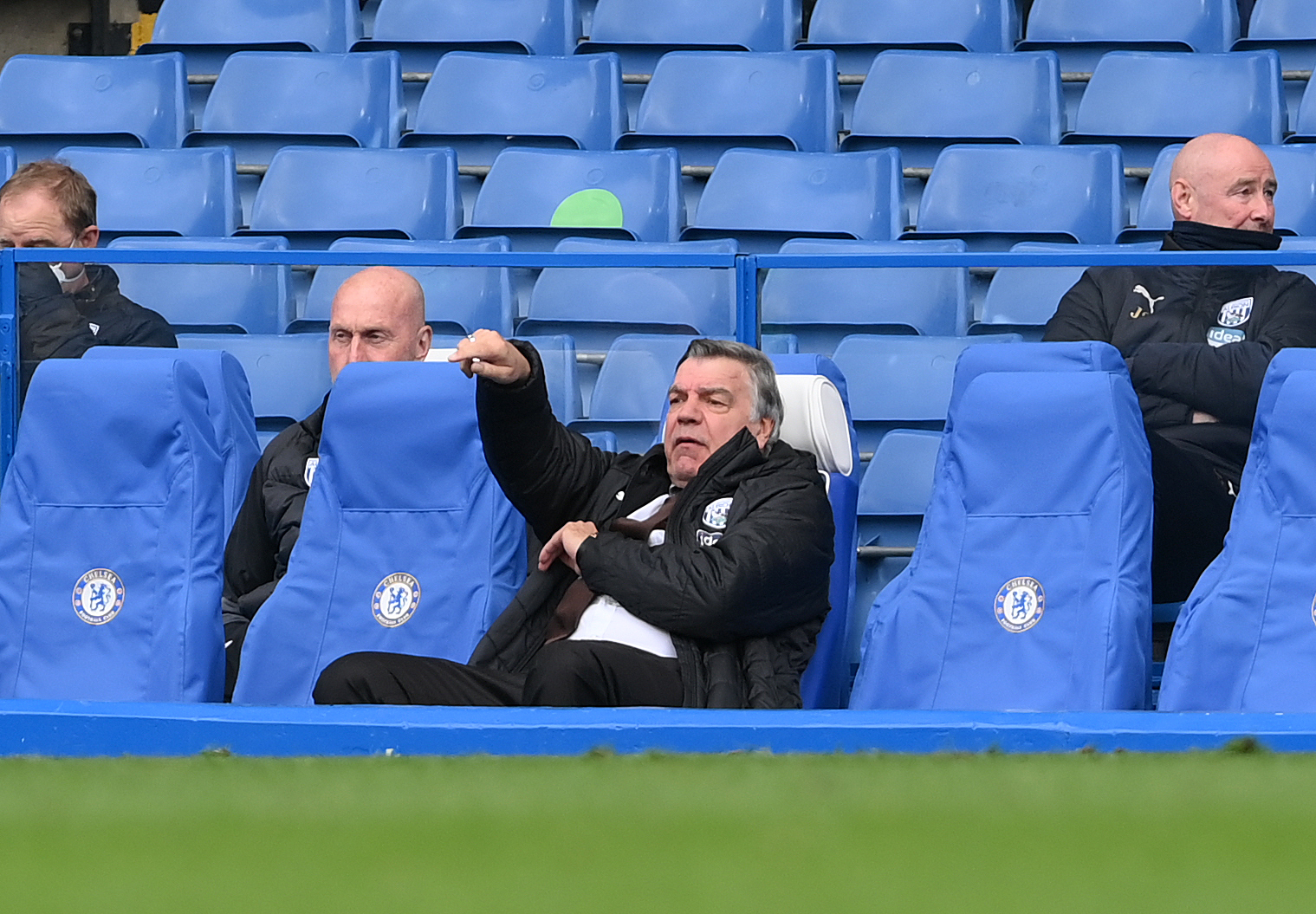West Brom's unexpected thrashing of Chelsea shows the value in watching every Premier League game
West Brom, Burnley and Newcastle United are not known for attacking football, yet each have seen their fair share of goalfests recently

In 29 seasons of Premier League football at Stamford Bridge, only one visiting manager has seen his side score five goals in a game. Step forward Sam Allardyce, the high priest of entertainment. Or not, perhaps: Allardyce’s reputation is not as an inveterate attacker and neither the evidence of the statistics or the naked eye suggests his are the most carefree sides.
But there the scoreline was Chelsea 2, West Bromwich Albion 5. “I didn’t think that this morning,” said a BBC broadcaster before an interview started. “Neither did I,” replied a laughing Allardyce. And, in that one exchange, came the essence of part of sport’s appeal and an explanation of why, actually, we should watch every game we can.
Chelsea had conceded twice in 14 matches. They were efficient if not necessarily exciting under Thomas Tuchel. Albion were doomed and dull, scorers of a solitary goal in their previous five outings. Assume it will be a 2-0 home win and skip it. But those who took that seemingly failsafe approach missed an extraordinary affair.
It was a one-off and yet a sign of things to come. Within 30 hours, Allardyce’s Albion, Sean Dyche’s Burnley and Steve Bruce’s Newcastle all played. Their matches produced 96 shots and 16 goals, nine of them scored by the sides managed by the footballing roundheads. It was all the more remarkable as one of those matches was against a Jose Mourinho team and another against Tuchel’s puritanical Chelsea.

If it was a reminder reputations can be exaggerated, that even supposedly defensive teams have attacking intent and talent and that even the lower scorers can create memorable encounters, it was not the only one.
Allardyce’s Albion have actually been watchable at times, albeit often for the wrong reasons; the 5-0 thrashing by Leeds and the 4-0 evisceration by Arsenal were one-sided but laced with class. Their 3-2 win at Wolves felt irrational but it was not boring. Burnley’s 3-2 victory over Aston Villa and 2-1 triumph at Everton offered drama and quality. Newcastle’s 3-2 win against Southampton was the sort of flawed, action-packed occasion to entertain the neutral.
But this is not really about Allardyce or Bruce or Dyche or their respective sides as much as a broader point. Every game carries the possibility of a ludicrous plot line; it could turn into the sort of match where far too many things happen, many of which don’t make sense, where a player or a team does something most had not thought them capable of. Some are likelier to contain high class, technical ability or goals, but dismissing others before they have begun is a policy that can backfire.
Get FourFourTwo Newsletter
The best features, fun and footballing quizzes, straight to your inbox every week.
The greatest shocks are forged partly because they were not expected. Sheffield United’s triumph at Old Trafford or Burnley’s win at Anfield – Brighton and Fulham then staged their sequels – are precisely the sort of games that it would be easy to overlook. They felt the definition of routine home wins.
But there can be no unpredictability without first having predictability; without creating the context where a 2-0 Chelsea win felt entirely logical, a 5-2 victory for West Bromwich Albion is not as stunning.
Football does not come with a guarantee of entertainment; choosing to watch a game entails the possibility it will be dreadful. Nor should anyone put lipstick on a pig and pretend an awful match is anything but terrible. The wait for a 5-2 can entail sitting through some 0-0s (though Manchester United have contrived to excel at both by having the most stalemates in the Premier League this season and the joint most games with five or more goals). But the nature of it is that the thriller can come where it is not advertised or anticipated.
If this weekend felt a throwback to the start of the season, where virtually every fixture felt absurdly eventful, and a contrast to some of the rounds of winter fixtures, where low-scoring encounters abounded, it came after the backdrop changed in other respects.
The blanket television coverage of the Premier League has come to an increasingly loud soundtrack of negativity from a minority of those who are fortunate enough to be paid to watch it and who object to it; who, in one or two cases, don’t seem to particularly like football and object to the chance to see more of it. The wider public, who tend to have less time, have more valid reasons to pick and choose their games; the chances are many would have surveyed Saturday’s fixture list and prioritised Leicester against Manchester City and Arsenal versus Liverpool over the seemingly obvious Chelsea win against West Brom. But, in a season that has had its 7-2s and 6-1s and 6-2s and 5-2s, it illustrated that you can never be sure where the classic will come and why it is a mistake to write off any. Part of the beauty in the beautiful game arrives where some expected ugliness.
Subscribe to FourFourTwo today and get your first five issues for just £5 for a limited time only - all the features, exclusive interviews, long reads and quizzes - for a cheaper price!
NOW READ
THIS IS ANFIELD The next Curtis Jones? 5 Liverpool youngsters who look destined for big things
GUIDE Premier League live streams: How to watch every game this week, from anywhere in the world
Richard Jolly also writes for the National, the Guardian, the Observer, the Straits Times, the Independent, Sporting Life, Football 365 and the Blizzard. He has written for the FourFourTwo website since 2018 and for the magazine in the 1990s and the 2020s, but not in between. He has covered 1500+ games and remembers a disturbing number of the 0-0 draws.

